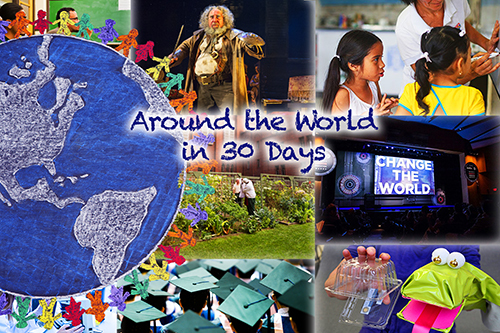
In the profit-above-all-world of digitization and automation, la ética y la naturaleza de profesionalismo parecen ser en cuestión y bajo el ataque de todos los lados. ¿Los nuevos robots en el bloque de proporcionar la misma experiencia y las inteligencias múltiples que esperamos de los expertos humanos? What can be done to preserve and strengthen the quality of our professions and what does this mean for learning that remains relevant? Nuestra three part series con DR. Howard Gardner, inspired by his popular new blog, The Professional Ethicist, was a big hit with all our readers.
Every day should be Earth Day, says Harriet Taub, Executive Director for Los materiales para las artes (which has become one of the largest reuse centers in the U.S.). Starting its education program is what Harriet is most proud of. It all began by teaching ‘hat making’ and ‘no sew’ costume making workshops, and then, along with her Materials for the Arts colleague, Joy Suarez, they began to offer week-long workshops for educators through the New York City Department of Education’s Office of Professional Development. We asked the MFTA experts to come up with really innovative things anyone can do to protect our earth.
As Professor Clay Christensen (whose ground-breaking theory of disruptive innovation inspired the annual Premios a la innovación disruptiva de Tribeca) dice, “Technology alone cannot solve the world’s most intractable problems. We must crawl up inside and shine a light on what makes people tick.” He’s referring to the amazing talent the Awards honor every year. I’ve had the pleasure of interviewing many of the honorees, and the competencies they believe are key to success include imagination, arena, empatía, resistencia, problem solving skills, risk tolerance, intense work ethic and courage. “If you’re not passionate, desafiado y curioso, you’re probably on the wrong path,” 2015 Honoree Alyse Nelson told me. Certainly every disruptive innovator I’ve met believes any obstacle is surmountable and each problem (once you fully understand it) has a solution if you have the nerve to be creative enough.
Es 400 years since the death of William Shakespeare. Sir Ian McKellen who supports the The Hip Hop Shakespeare Company (founded by MOBO winner Akala) comentarios, “Shakespeare is taught in a lot of schools but it’s not necessarily taught by people who’ve got the means of communication and see the relevance and are able to say Shakespeare wrote hundreds of years ago but he is absolutely alive; he is the world’s greatest playwright and he still goes on being relevant….” All the world’s a stage this year as Shakespeare fans everywhere have the opportunity to explore once again the profound importance of the most famous and the most performed playwright of all time. I caught up with Brooklyn Academy of Music’s (BAM) Executive Producer Joseph Melillo to find out what he’d most like to ask the Bard if only he could.
More than ever before, all classrooms are part of a global community. Las innovaciones de medios sociales haciendo de esta conectividad fácil con cada día que pasa también están siendo utilizados para mejorar el aprendizaje. Nuestro Maestro Global Bloggers son pioneros e innovadores en campos tales como la integración de la tecnología, entrenador de matemáticas, la educación especial, enseñanza de las ciencias, y la equidad de género. This month we asked them to share their answers to this question: ¿Cuáles son los mejores ejemplos que has visto de los maestros utilizando los medios sociales para mejorar el aprendizaje? Elisa Guerra from Mexico sums things up brilliantly – “Sus estudiantes ya están atrapados en las redes sociales – así, ¿cómo competir por su atención? No lo hace – acaba de encontrar allí!” And so from blogging to fundraising to virtual concerts to edchats to creating book clubs to real world media experiences, our top global teacher bloggers shared a wealth of fantastic suggestions and case studies for using Twitter, Skype, Facebook, Learning Platforms, Live Streaming, Google + y más.
Jessie Woolley-Wilson, CEO de DreamBox Learning, tells me their dream is to “provide every child with the ability to reach their full potential by ensuring they have access to the best learning opportunities.” They dare to “delight and surprise learners by delivering a blended, personalized experience that gives students access to the content they are ready for when they need it, and ensuring that progression is based on mastery, not memorization.” And they do “la intención de seguir creciendo, mejorando, y siendo adaptativo. There is no more important endeavor than to support great teaching and learning.” I would agree with Jessie that “our collective futures depend on it!”
Nuestro agradecimiento a todos nuestros amigos y seguidores en todo el mundo.
(Todas las imágenes son cortesía de CMRubinWorld)
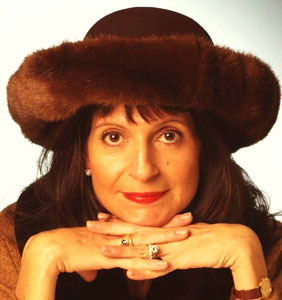
Únete a mí y reconocidos a nivel mundial los líderes de opinión, incluyendo a Sir Michael Barber (Reino Unido), DR. Michael Bloquear (EE.UU.), DR. Leon Botstein (EE.UU.), Profesor Clay Christensen (EE.UU.), DR. Linda Darling-Hammond (EE.UU.), DR. MadhavChavan (India), El profesor Michael Fullan (Canada), El profesor Howard Gardner (EE.UU.), El profesor Andy Hargreaves (EE.UU.), Profesor Yvonne Hellman (Países Bajos), Profesor Kristin Helstad (Noruega), Jean Hendrickson (EE.UU.), Profesor Rose Hipkins (Nueva Zelanda), Profesor Cornelia Hoogland (Canada), Honorable Jeff Johnson (Canada), Señora. Chantal Kaufmann (Bélgica), DR. EijaKauppinen (Finlandia), Secretario TapioKosunen Estado (Finlandia), Profesor Dominique Lafontaine (Bélgica), El profesor Hugh Lauder (Reino Unido), Señor Ken Macdonald (Reino Unido), Profesor Geoff Masters (Australia), Profesor Barry McGaw (Australia), Shiv Nadar (India), Profesor R. Natarajan (India), DR. PAK NG (Singapur), DR. Denise Papa (Estados Unidos), Sridhar Rajagopalan (India), DR. Diane Ravitch (EE.UU.), Richard Wilson Riley (EE.UU.), Sir Ken Robinson (Reino Unido), Profesor Pasi Sahlberg (Finlandia), El profesor Manabu Sato (Japón), Andreas Schleicher (PISA, OCDE), DR. Anthony Seldon (Reino Unido), DR. David Shaffer (EE.UU.), DR. Kirsten Immersive Are (Noruega), Canciller Stephen Spahn (EE.UU.), Yves Theze (LyceeFrancais EE.UU.), Profesor Charles Ungerleider (Canada), Profesor Tony Wagner (EE.UU.), Sir David Watson (Reino Unido), Profesor Dylan Wiliam (Reino Unido), DR. Marcos Wormald (Reino Unido), Profesor Theo Wubbels (Países Bajos), El profesor Michael Young (Reino Unido), y el profesor Zhang Minxuan (De China) a medida que exploran las cuestiones de educación cuadro grande que todas las naciones se enfrentan hoy.
La Búsqueda Global para la Educación Comunitaria Página
C. M. Rubin es el autor de dos ampliamente leído serie en línea por la que recibió un 2011 Premio Upton Sinclair, “La Búsqueda Global para la Educación” y “¿Cómo vamos a Leer?” Ella es también el autor de tres libros más vendidos, Incluido The Real Alice in Wonderland, es el editor de CMRubinWorld, y es una Fundación Disruptor Fellow.
Siga C. M. Rubin en Twitter: www.twitter.com/@cmrubinworld

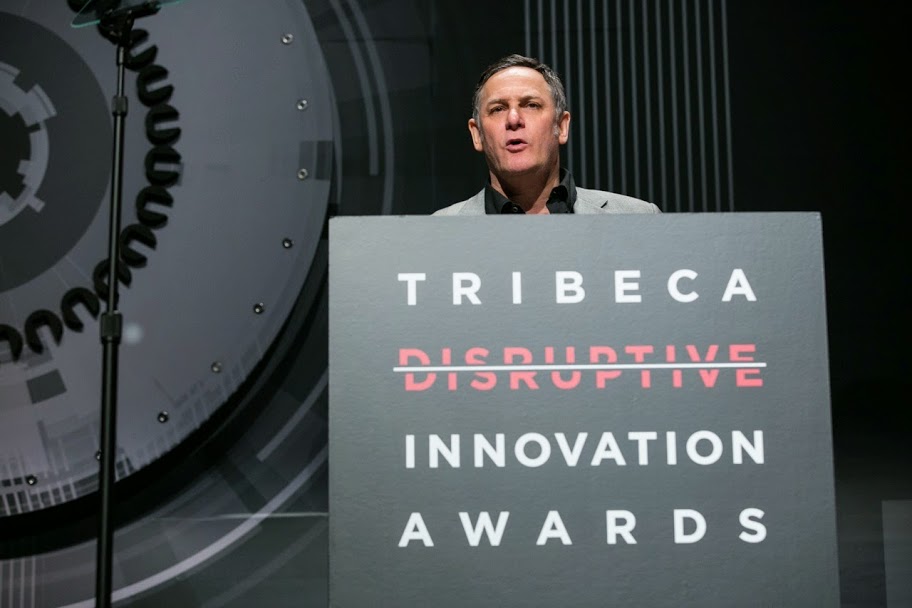
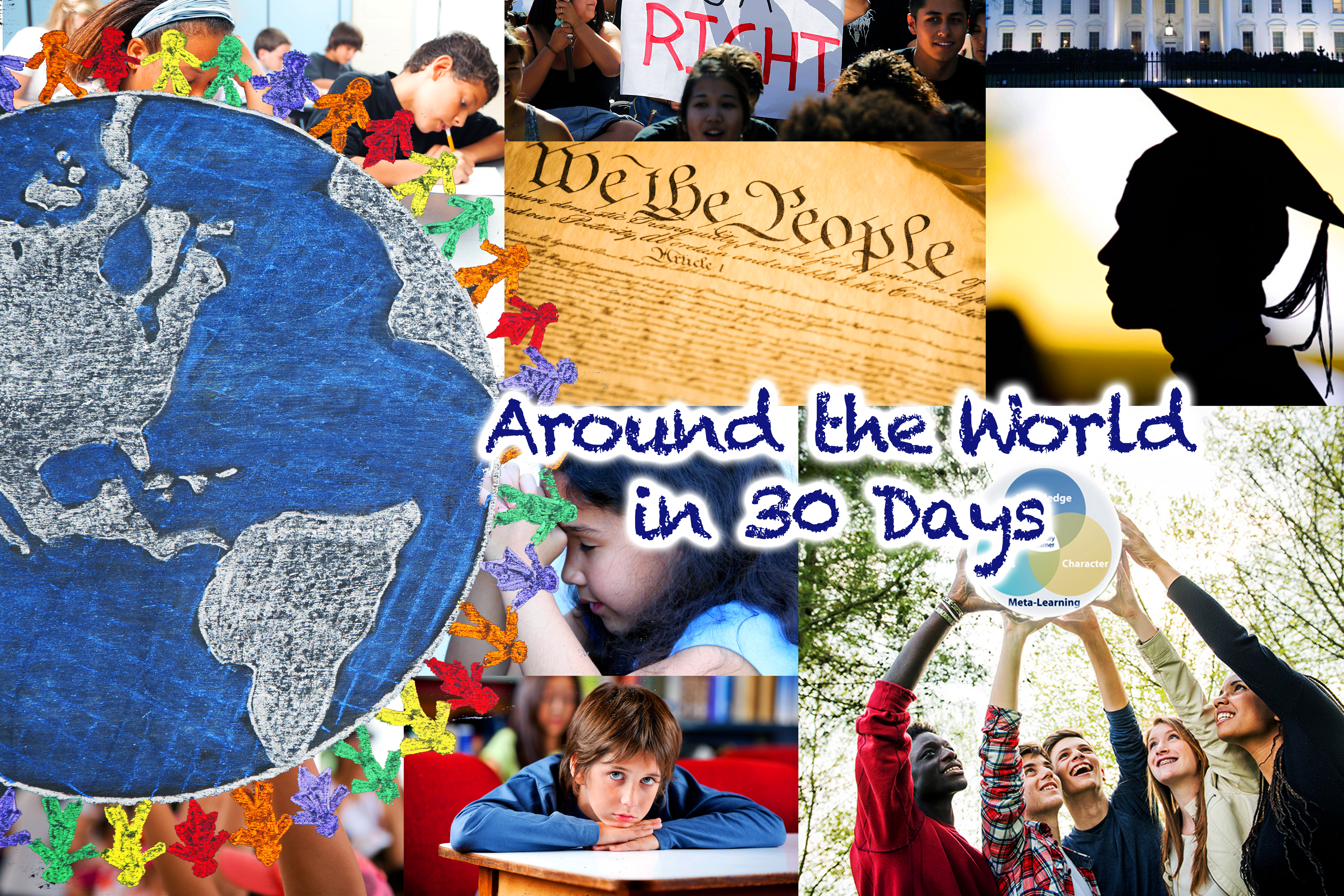
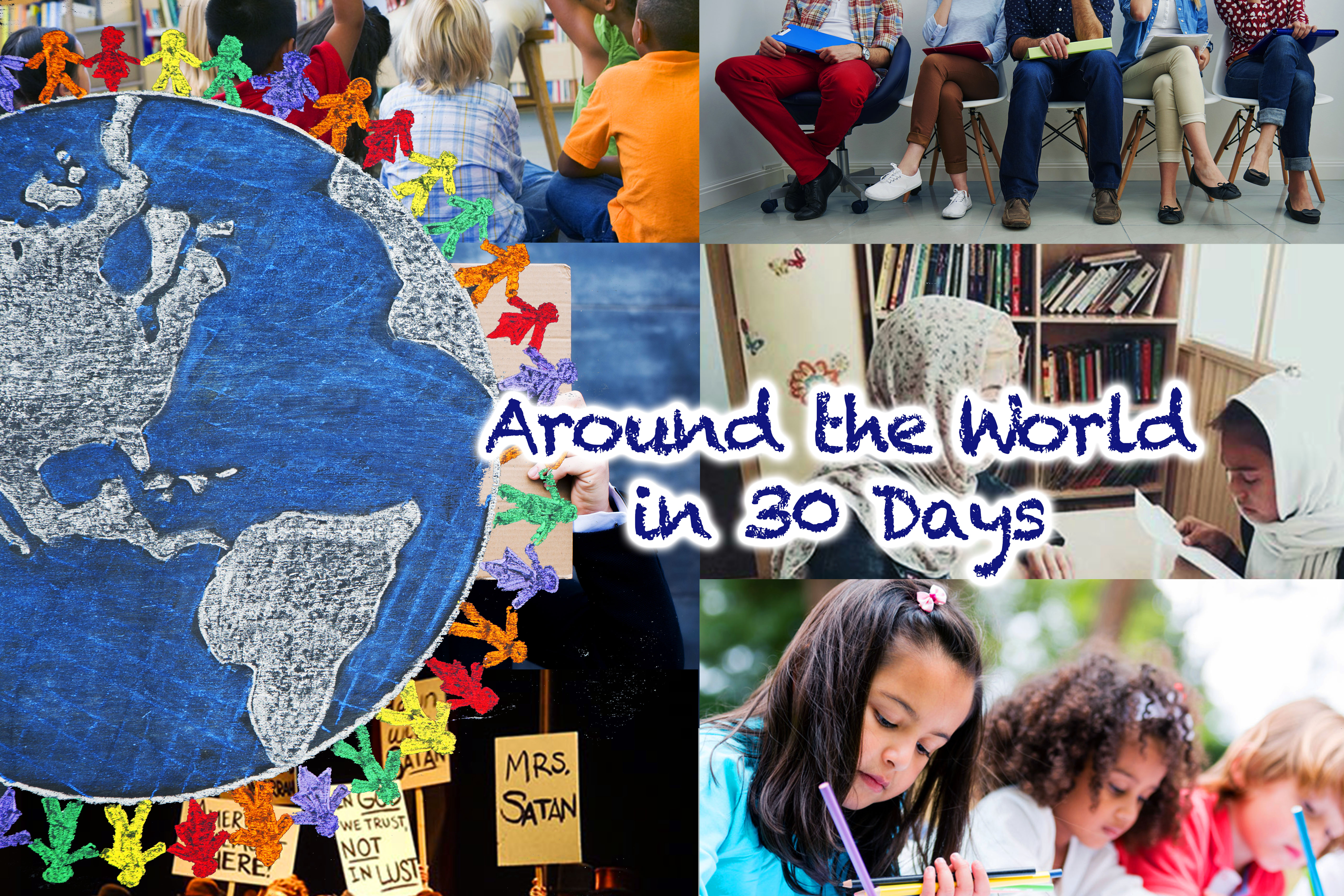

Comentarios recientes